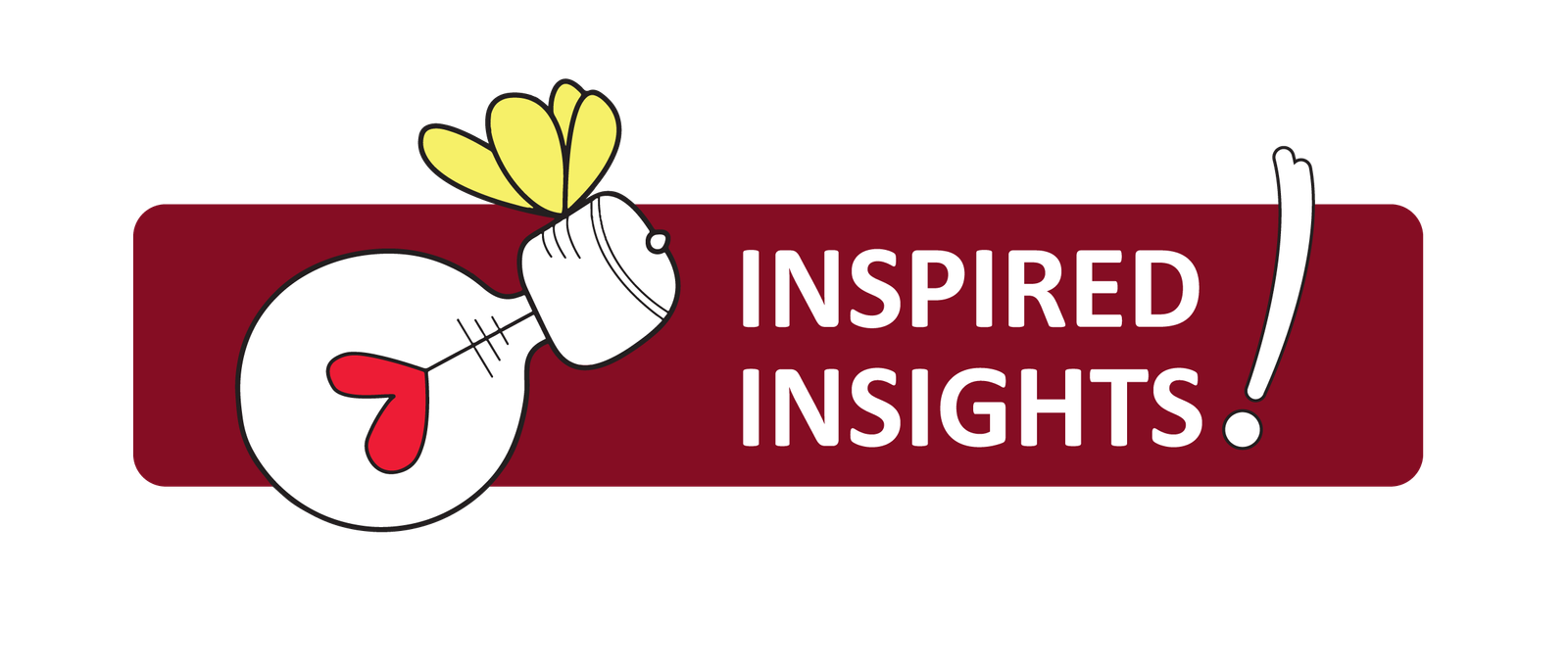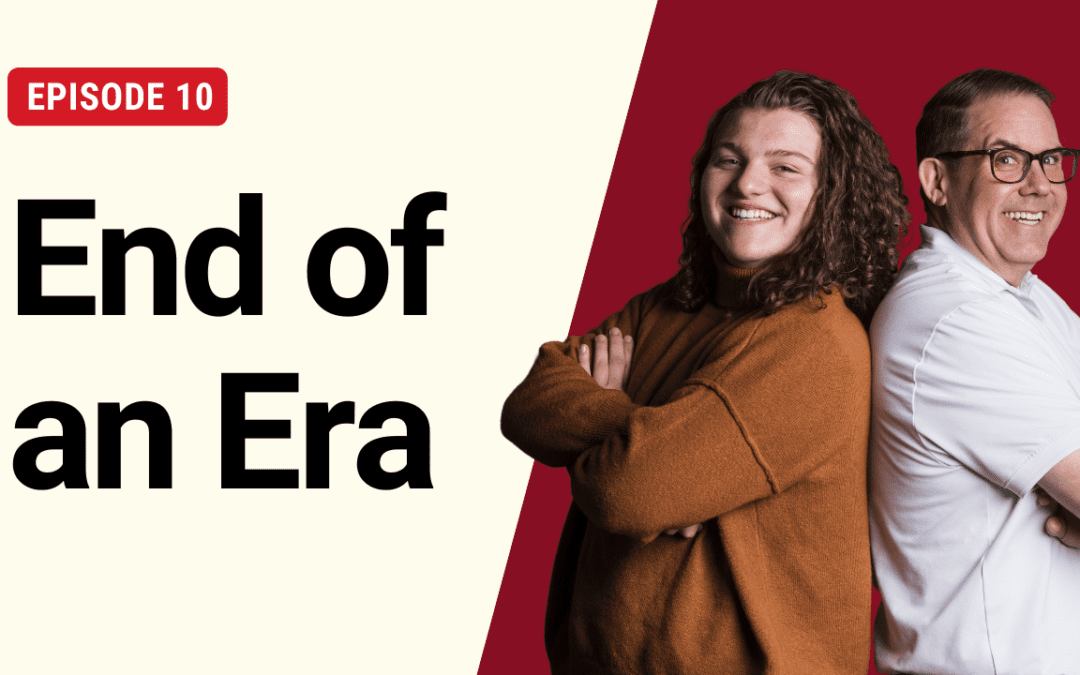Episode 9:
Exploring the Self: Living Authentically in the Houses We Build
S01 - Episode 9
August 03, 2024
26 mins & 32 secs
Speakers
Chris McLaughlin
Soren Peterson
About
Going deep! Get a glimpse of Soren’s love for philosophy as Chris and Soren explore growing into and defining a sense of self. Soren shares the pressure and angst of figuring out who they are, who they want to be, and how to get there. Watch as Soren’s descriptions bring Chris back to a time he had long forgotten.
*Please note that this episode contains sensitive behavioral health topics such as suicide and substance use. If you are experiencing a behavioral health crisis, please contact the 988 Suicide & Crisis Lifeline by calling 988 or visiting www.988lifeline.org.
**This podcast is for information and entertainment purposes only and should not be considered health advice. This podcast is not intended to replace professional medical advice.
Transcript
Chris: My friend Soren, welcome back. Happy Pride Month again. We are recording this right in June.
Happy Pride. Happy Pride.
Soren: So today we’re going to be talking about the self and the evolution of it. We’re going to be talking about how do we figure out who we are and what does us mean, right? Everybody in modern society is attempting to self-actualize, but they’re attempting to achieve something that I don’t think they themselves even know.
I feel like, at least myself, I struggle to figure out who I am. And I seem like a very self-assured person, but I try so hard to figure out a concrete idea of who I am. But the reality is just that I’m very fluid, right?
And I spend a lot of time trying to figure out who I am, how I want to behave. But I think that I can behave in a bunch of different ways and present myself in a bunch of different ways without compromising my integrity.
Chris: Yeah, well, it reminds us of last week’s episode where we were talking about brand and how we respond to criticism and folks attacking us and different styles of the clapback. And I think you and I were in agreement of sort of how today who we are, how we clap back isn’t the same way we used to before. But I’m curious.
I love this conversation with you. Tell me a little bit about where that pressure for you comes in. 20% of your estimation of trying to figure out who I am.
What’s driving that? Where’s that pressure come from for you?
Soren: I think it’s all internally derived for the most part. But also, society really loves when people are categorized, right? Yeah.
And especially high school really puts pressure on people socially to find a niche for themselves and brand themselves in a very distinct, specific way, which sort of removes the nuance, right? It’s very easy for us to understand categories of individuals and how they behave as a group without engaging with the nuance of individuals. And I think in high school, I’ve never fit into a proper social niche.
And my entire friend group is just kind of misfits that don’t really fit into a proper social niche, which I guess misfits might be my social niche.
Chris: Yeah.
Soren: But that’s the bond that ties you together. I think it’s both societal and internally derived. I just have such a burning desire to figure out who I am in a concrete sense.
And yet, at the same time, I know that I am not a written in stone person. It will always be changing. I cannot find a concrete ideal that I want to achieve.
And if I do find a concrete ideal that I want to achieve, I’ll be constraining who I am.
Chris: Yeah. Yeah, it’s so… Yes.
And you and I have talked about this across the last several episodes that, you know, I believe that our best days are ahead. I believe that we are all works of progress. I believe that who we are tomorrow is going to be different of perhaps who we are today.
And at least for myself, when I look back at the eras of Chris… Yeah. There were some pretty unique eras, but they were all shades of maybe a similar color.
Yeah. And for me, and we talked about this last week, that’s brand, that’s authenticity, that’s self. And I’m not just talking about brand in the business sense.
I’m talking about how I engage the world professionally or personally is my brand. My brand is my color. Yeah.
Therefore, I’m most successful in my brand when I’m operating within the shade of that color. I also recognize the shade that I’m going to be a year from now, 10 years from now, it’s going to be a different hue than what we’re talking about today. And at the same time, I don’t know that I feel a similar sense of pressure that you are feeling around who is Soren Peterson, who is Chris McLaughlin.
Soren: Yeah. Well, I feel like that pressure diminishes over time. Especially with us having to decide what we want our future plans to be with.
Yeah, good point. At such an early age, do you want to go to college? What do you want to study when you go to college?
Are you going to enter the workforce? Like, we are deciding what the rest of our life is for a lot of people feel like they’re deciding what the rest of their life is at a very early age. So we do have that social pressure to figure out what we want.
And like, I don’t know what I want. I feel like most of my generation doesn’t know what they want. Like we’re in a very unique situation where we are teenagers still trying to figure out who we are, let alone what we want.
And yet we’re in a situation where we’re about to graduate high school. We are deciding what a good portion of our life is going to look like right now.
Chris: Yeah, that’s a good reminder, Soren, that I maybe have forgotten a little bit about what that pressure to be definitive felt like. Um, you know, you are looking at being done your junior year in high school in a matter of weeks. Yeah.
And then your senior year. And all of that, now that I’m talking about it, I’m hearing your words. I’m kind of going back in time a little bit.
Like I do remember this, you know, talking about who’s applying to go where. It’s not just, are you going to college? It’s where?
Yeah. What are you going to study? Yeah.
Back then, it was what’s your minor going to be like? Not only did you have to define what you were going to major in. Yeah.
But there was this pressure to be like, what are you going to minor in? Yeah. It’s a lot.
Soren: And I think like I am very lucky in the fact that I have intellectual aspirations. Like I want to achieve a certain ideal with my life. Like I know what I want to pursue academically at least.
But like I think also in that I know what I want to pursue academically. I’m even more lost internally because I don’t know who, like I don’t know the soren that I want to be to approach that. Right.
And I have aspirations, but how can I meld myself to achieve those? Right. Uh, but also like, I feel like teenagers have all this pressure on them because I think that their decisions now are concrete.
And I put a lot of emphasis on the fact that we’re dynamic.
Chris: Yeah.
Soren: Things can change instantly.
Chris: Yeah.
Soren: The decisions that we make, yes, they have gravitas and yes, they will be impactful, but it’s not like life or death. And if you don’t know what you want to do, it’s even more flexibility.
Chris: Yeah.
Soren: It’s not like a crushing constraint. It’s not a, uh, debuff.
Chris: Yeah.
Soren: It’s like a, it’s a benefit.
Chris: I think here’s, and here’s what I know a couple weeks ago, you, um, shared with our listeners, some hard stuff about your own experience in mental health and crisis. And so, you know, what you shared a couple weeks ago was just the reality for you at that time where you didn’t see yourself having a future. Yeah.
Now you’re at this complete 180 place where the cliche, like the world is your oyster. Yeah. You are looking at going to big places and doing some big things.
Yeah. And so maybe part of what you’re wrestling with is the result of having that pause for so long when you were in crisis for those years that you were in crisis. Yeah.
And now you’re in a better place, but the pressure is starting to sink in.
Soren: Well, I think when I was in crisis, like I was afraid of making decisive decisions for my future. Right. And so instead I crafted a future for myself where I wouldn’t have to make any decisions.
Right. Right. And it was very, like, it’s very comforting to know what’s going to happen.
Chris: Right.
Soren: Like with suicidality, you’re in control of your destiny and you’re in control of who you are, but like not really, but that’s the illusion that it presents. And now I’m in a place where I have to embrace that uncertainty and jump into the abyss with a smile on my face rather than fall into the abyss with a sense of. Yeah.
Yeah.
Chris: Yeah. Yeah.
Soren: But like, I don’t know, like I was saying, we’re very dynamic and I have tried so hard to convince myself that I don’t need to create a sense of continuity with who I am. I can be whatever I’m behaving like in the moment and that doesn’t somehow compromise who I am long term. It simply adds to it.
Right.
Chris: Yeah. Do you feel like, like I’m going to use your words, like your friend group is sort of the misfits, the youth who don’t necessarily ascribe or they’re not welcome in some of the other fixed social strata of a typical high school. Do you feel like it’s because your friends are who your friends are, there’s a little bit more permission to be that fluidity, to not necessarily have to stay in this rigid social role of the jock or the cheerleader or the academic or the other groups?
Soren: Well, like we find solidarity in our sort of like misfits where we’re all to some extent like academic achievers that don’t put effort into school. Which you’ve talked about before.
Chris: Yeah, much to your mother’s chagrin for sure.
Soren: But like, I think it is a very unique social situation that has allowed me to be more open to the possibilities of the future. Right. Because I don’t feel like I used to really want to fit into a certain like social role.
I used to desire so deeply like a comfort of that. And through that, I attempted to force myself into a variety of social roles. Like for a while, I was the gay best friend or I was one of the boys or I was like a druggie.
Um, like I attempted to force myself into a social niche so that I could feel identity and feel community. But by forcing myself into those social niches, I felt even more lost because I was sort of divorcing myself from my own personality and adopting a new one so that I could fit in somewhere.
Chris: Well, you were trying on a color to use my example of shades. That wasn’t you. You weren’t authentic to you.
And so I think when I talk with other youth about this idea of, um, the social scenes and the clicks or the groups or whatever words folks want to use for them, you know, there’s something, there’s a pro and a con here. There’s something really kind of nice about, okay, I’m, I’m in this role and now I just have to play this part. It’s defined for me.
I can be the stereotype of this image and it’s written for me. I don’t have to, I don’t have to work at it. The downside to that is the rigidity of having to live in this role that no other shades, no other colors are welcome to you.
Soren: Yeah. Well, I feel like humans evolved to fit like a specific role in like a tribal structure and now we’re thrown into an environment where there’s no designated role that we have to pursue. We can do anything and that’s scary, but that’s also exciting.
And like, I think about, um, how like I want to find one thing that I am or can be, but I am all of the things that I have been and will be.
Chris: Right.
Soren: Like, I like to use the house metaphor that I came up with, but I guess Taylor Swift uses a similar one. That like, I am a house and throughout my youth, I have occupied one room at a time. Each time I move into a new room, it adds that room to my house.
And I think growing up and gaining maturity is realizing that you can be in multiple rooms at a time and like self-actualization is adding rooms at the same time that you’re occupying your entire home.
Chris: Yeah. Right. You’re building it as you’re living in it.
Soren: Yeah, yeah, exactly.
Chris: Yeah. And I love the house metaphor. And I’ll give you credit for it.
I’ll give you credit for it because Taylor’s version of the house really is the rooms as her heirs.
Soren: Yeah.
Chris: And Taylor gives herself permission to kind of come and flow through this house. What makes your analogy a bit more unique is this ability to exist simultaneously in different rooms. What I also love about your house metaphor, though, is this idea of foundation.
Yeah. And it takes clearly a solid foundation for you to continue to build up and out this infinite number of rooms that you want to build in your house. But if your foundation is weak, your rooms collapse.
Soren: Yeah, that’s so true. And I think I have worked very hard to… I used to throw away my underlying personality traits in order to pursue whatever I was attempting to pursue at the moment.
And I would totally change into a different person to adapt to a different situation. But now I am attempting to embrace my authentic self and figure out what my unique personality traits are while also having a few accoutrements, a bit of a flourish for whatever I’m trying to try on at the moment.
Chris: Yeah, yeah. You’re at this age where you’re figuring out your color and you’re figuring out the shades and there’s a thread that connects all your rooms together. It’s like a trail of breadcrumbs you’ve left for yourself.
So you always find your way back. Yeah. Because what you and I have talked about on and off this podcast is when you were trying on those other roles that didn’t feel authentic to you, you weren’t successful in those roles.
They may have brought you some relief or some temporary sense of fitting in or escaping other things, but it was never you. And so often in this podcast, Soren, you’ve talked about how when you were younger, you embraced a lot of color in your wardrobe. I remember, having watched you grow up in a lot of ways, some of the outfits and the attire that you showed up to places in, I was like, work, Soren, work.
And more recently, you’ve talked here in this podcast about having lost that a little bit. Yeah. So I’m wondering, to get back to your house metaphor, in what room is your closet and does that closet still hold some of the old you and that old style that used to define you?
Soren: Yeah. Well, what I like about the house metaphor is that we can maintain all the rooms at once. We still have access to those.
And by that, we still have access to the lessons that we learned. And I think a lot of people, when they switch from a different social niche to another or something of that nature, try to alter their personality or aesthetic in a significant way. They try to throw away and disregard what they used to be.
But by throwing away and disregarding that, you’re also disregarding the lessons that you learned through that experience.
Chris: Yeah.
Soren: And going back to my wardrobe and how I used to express myself, I don’t know if I want to achieve that ideal again, because that’s a scary way to present in modern society, to be honest. And I think the way that I want to present myself now obviously encapsulates that to some extent, but also I’ve added onto it. Now, honestly, I prefer darker browns and greens.
Chris: Yeah.
Soren: Despite what you’re wearing today. Well, I love this cardigan, but I like a more academic aesthetic. And I don’t know if I’ll ever go back to the same level of color and vibrancy that I once was.
Chris: But clearly, very literally, but to your point, you didn’t trash and bag up and throw away everything that existed in any of your former rooms. Exactly. They’re still there and you can visit them and you can bring them out from time to time and look amazing in it.
Yeah. But you’re not burning it down. Exactly.
You’re not burning a room down before you build or after you built the next one.
Soren: We can be multiple things at once. And I think I struggle with that a lot.
Chris: Yeah.
Soren: It’s like, I always want to be not perfect, but I don’t want to be a hypocrite. I want to maintain continuity. I have a very innate internal drive for logic and a concrete foundation and a very hard and fast reality.
But a lot of me growing into myself is realizing that that isn’t something that I can have, right? And it’s not something that I want, really. I don’t want to trap myself in that way.
Oh, and I need to become used to being all of the things that I am at once.
Chris: Yeah.
Soren: And being able to have a toolbox with all sorts of tools from all sorts of eras.
Chris: Yeah. And maybe like to go back to this metaphor that you’re using, and I love it. Maybe instead of a toolbox, it’s a key ring.
Yeah, yeah. It’s a ring of keys.
Soren: Yeah.
Chris: And each of those keys will unlock the lessons that you’ve been able to learn and take and experience from previous rooms. And you don’t have to change the locks. You just need to remain in access to what those locks will, what’s behind those doors.
Yeah. You know, you’re describing, you’re articulating, I think, a hallmark of adolescence of figuring out who I am, who do I want to be, what’s worked for me and what hasn’t. Yeah.
And one of the many things I love about you and your friend group is because of the rooms you’re all currently occupying, you haven’t trapped yourself into being something you don’t want to be. Yeah. You give each other permission and flexibility and freedom to keep building, to keep building those rooms.
Soren: Exactly. Yeah, it’s something so important to be able to do, but also, like, we talk a lot about it’s important to utilize these things, but it’s very difficult to, right?
Chris: Yeah.
Soren: Like, in the moment, I struggle with it so much, but then looking back, I don’t understand why I’m struggling with this because, like, all I need to know what I want, all I need to know is, like, what I want in the moment to some extent and what I want my plans to be. I need to only dictate my behavior rather than dictating who I am, right? Like, by behaving in a certain way, we are not somehow defining who we are internally.
We are just defining how we behave externally.
Chris: Yeah. And we’re all evolving.
Soren: Exactly.
Chris: So part of the act of building new rooms is trying new stuff out and being open to exploring other elements of our humanity. Like, that’s the ability to get to the top of that Maslow triangle that is self-actualization is, one, ensuring that all these other human needs have been met.
Soren: Yeah.
Chris: So that we can play in that sandbox at the top of the triangle, but it’s also not a complete burning down of the foundation of that triangle.
Soren: Yeah, like, I kind of have distaste for the idea of self-actualization because self-actualization sort of, like, as a phrase is very singular in what it has you infer, whereas it’s not a singular pursuit to be, like, self-actualized. It is a constant pursuit of what you enjoy. How can you make life better for you and those around you?
Like, it’s self-actualization moves around and is in the present. It’s not a fixed place in the future, right?
Chris: Yeah.
Soren: And I think we always get stuck running towards something that we don’t know where it is, right? We’re just on a treadmill going towards some ideal pursuing frivolities. When self-actualization is in the now, it’s not in the future.
And it means very different things from moment to moment, right?
Chris: Yeah. Yeah. It’s when we let the pressure that we’re feeling, when we let the pressure win.
For me, that’s the definition of the treadmill. Yeah. Like, running for running’s sake.
And if I stop, this treadmill’s going to, the belt’s going to throw me back against the wall.
Soren: Yeah.
Chris: So I’ve got to keep my legs moving even though I’m exhausted. Yeah. Wow.
I feel like this is one of our deeper conversations.
Soren: I love talking about stuff like this because, like, it’s like, in my eyes, more surface level philosophy, but it’s so engaging and human. We’re not talking about raw logic, which is what a lot of philosophy is.
Chris: Yeah.
Soren: We’re talking about irrationality and how to pursue ourselves, right? This isn’t something that can be logically parsed out. It’s not a mathematical theorem.
Chris: Yeah. Right. Well, and that’s part of our brand, and it’s part of the brand of the Inspired Insights podcast, is that there’s excitement in the what if.
Soren: Yeah.
Chris: Excitement in the what could be. Totally.
Soren: Yeah.
Chris: I totally agree. Yeah. Well, listeners, if you’ve stuck with us through this one, thank you.
I’m Chris McLaughlin. I’m Soren Peterson. And we look forward to joining with you for our last episode of season one.
My goodness. Next week. Yeah.
Look forward to it. Take care. Bye.
Bye-bye.
—
The Inspired Insights podcast has been brought to you by Inspired Consulting Group, LLC. Edited and produced by Amanda Seidel.
Show More

All Episodes

S3E9: College Bound: Transitions to Your Next Era
Soren and Chris sit down with two student life experts, Angela and Andi, to explore the powerful transition from high school to college—and how it reshapes community, mental health, identity, and daily life.

S3E10: End of an Era
Chris and Soren sit down in front of a studio audience filled with family, friends, and past guests to reflect on three seasons and 30 powerful episodes of storytelling, vulnerability, and intergenerational insight.

S2E1: Collecting Joy
The start of Season 2 is here! In our premiere episode, Chris and Soren explore the pursuit of happiness through the intentional collection of joy.

S2E2: Faith Across the Rainbow
Join our guest, chaplain and clinician, Greg Bridges-Music, as he talks with Chris and Soren about navigating the intricate relationship between spirituality and LGBTQ+ identities.

S2E3: Sequins and Smiles
Dive into the vibrant world of drag as Maine’s local drag performer, Dominick Varney, shares personal stories and insights on embodying Queer Joy through the art of drag.

S2E4: WERK!
This discussion highlights how attitudes towards careers, workplace culture, and work-life balance have shifted over time.

S2E5: Siblings Revelations Part 1 of 2
In this 2-part episode, Chris and Soren are joined by their two younger brothers to discuss the unique experiences and valuable lessons learned from growing up with older queer siblings.

S2E6: Siblings Revelations Part 2 of 2
In this 2-part episode, Chris and Soren are joined by their two younger brothers to discuss the unique experiences and valuable lessons learned from growing up with older queer siblings.
